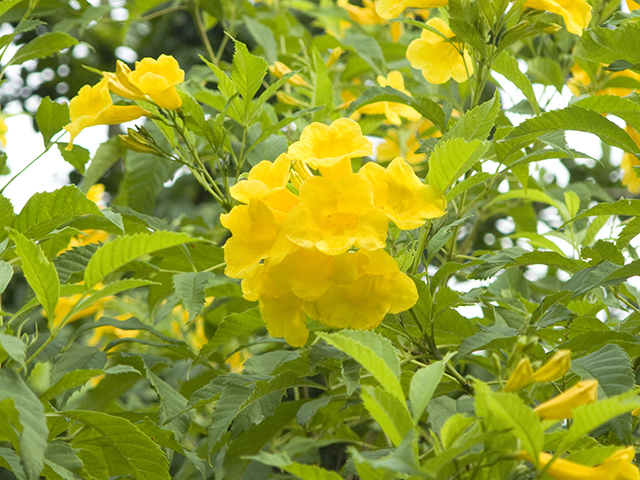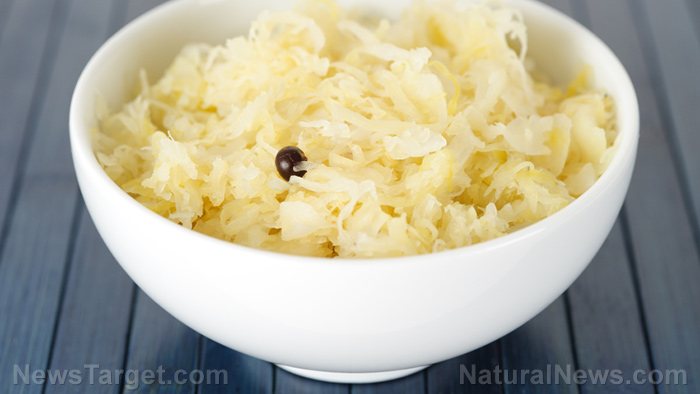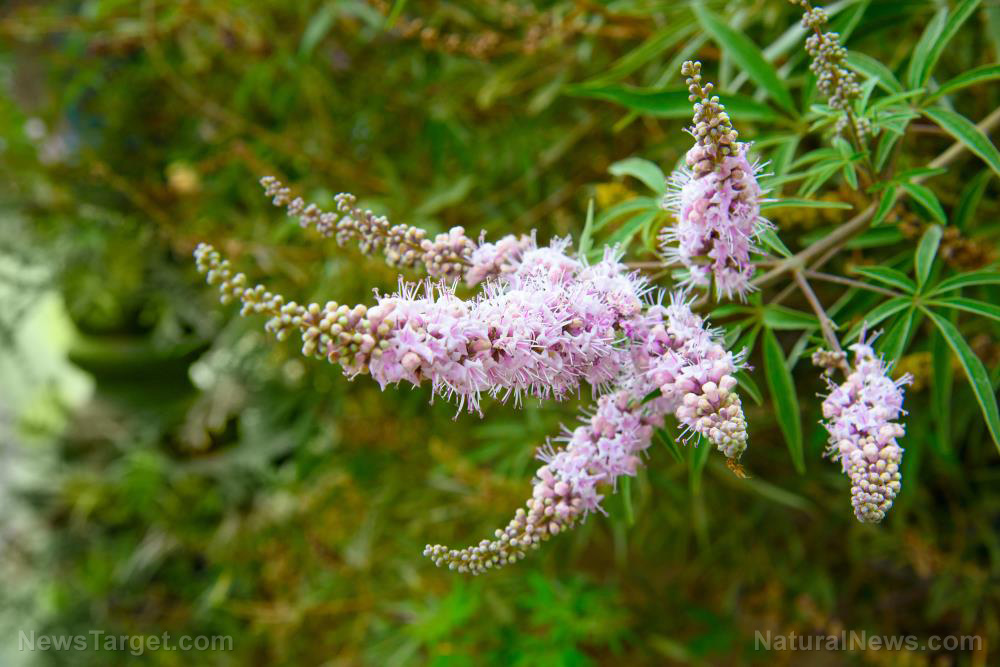Astragalus: The ancient herb of vitality and resilience
04/14/2025 / By Ava Grace

- Astragalus (Astragalus membranaceus), known as huáng qí in Chinese, has been a key herb in Traditional Chinese Medicine (TCM) for over 2,000 years. It is revered for its adaptogenic and immune-boosting properties, documented in ancient texts like the Shennong Ben Cao Jing.
- The herb is rich in phytonutrients, including astragalosides, flavonoids, polysaccharides and cycloastragenol, that are responsible for its antioxidant, anti-inflammatory and immunomodulatory effects.
- Astragalus is celebrated for its wide-ranging benefits, including immune system enhancement, cardiovascular health improvement, anti-aging properties, blood sugar regulation, cancer therapy support and stress adaptation.
- Traditionally consumed as tea or in soups, astragalus is now incorporated into modern wellness practices. Its mild, sweet flavor makes it versatile for both culinary and medicinal applications.
- Known by various names across cultures, astragalus is a symbol of vitality in TCM. It can be used in recipes like immune-boosting soups, herbal teas, energy bites, bone broths and smoothies, showcasing its adaptability in promoting health and wellness.
Astragalus (Astragalus membranaceus), also known as Mongolian milkvetch, is a flowering plant in the legume family that has been revered for centuries in traditional medicine. Known as huáng qí in Chinese, this herb has long been celebrated for its adaptogenic and immune-boosting properties. With a rich history, a wealth of phytonutrients and a reputation for promoting vitality, astragalus continues to captivate modern wellness enthusiasts and researchers alike.
Brief history of astragalus
Astragalus has been a cornerstone of Traditional Chinese Medicine (TCM) for over 2,000 years. Its use was first documented in the Shennong Ben Cao Jing (The Divine Farmer’s Materia Medica), one of the oldest texts on herbal medicine, written around 200 AD. In TCM, astragalus is classified as a “qi-tonifying” herb, meaning it is believed to enhance the body’s vital energy, or qi. Historically, it was used to strengthen the body’s defenses, improve stamina and support recovery from illness. (Related: Astragalus shows amazing antioxidant, anti-inflammatory, and anticancer effects.)
Native to the temperate regions of China, Mongolia and Korea, astragalus thrives in well-drained soils and sunny climates. The plant is characterized by its small, yellow flowers and feathery leaves, but its medicinal value lies primarily in its roots. These roots are harvested, dried and processed into powders, teas, tinctures or capsules for therapeutic use.
In traditional practices, astragalus is often consumed as a tea or added to soups and broths. Its mild, slightly sweet flavor makes it a versatile ingredient in both culinary and medicinal preparations. Modern wellness enthusiasts incorporate astragalus into smoothies, tinctures or capsules for convenience.
One popular anecdote involves a TCM practitioner who prescribed astragalus root tea to a patient recovering from a prolonged illness. The patient reported feeling a surge of energy and improved vitality within weeks, attributing the recovery to the herb’s restorative properties.
Phytonutrients and health benefits
Astragalus is a treasure trove of bioactive compounds, such as polysaccharides, flavonoids and saponins. These phytonutrients contribute to its antioxidant, anti-inflammatory and immunomodulatory effects. Key compounds in astragalus include:
- Astragalosides – A group of saponins known for their anti-aging and cardioprotective properties.
- Flavonoids – Antioxidants that combat oxidative stress and support cellular health.
- Polysaccharides – Immune-boosting compounds that enhance the activity of white blood cells.
- Cycloastragenol – A compound believed to activate telomerase, an enzyme associated with cellular longevity.
Astragalus is often referred to as a “superherb” due to its wide-ranging health benefits. Research suggests it can provide:
- Immune support – Astragalus is renowned for its ability to enhance immune function. Studies indicate that its polysaccharides can stimulate the production of immune cells, making it a popular remedy during cold and flu season.
- Cardiovascular support – Astragalus has been shown to improve heart function by reducing blood pressure, lowering cholesterol levels and enhancing blood flow.
- Anti-aging effects and longevity – Astragalus is often touted as an anti-aging herb due to its potential to protect telomeres, the protective caps on chromosomes that shorten with age.
- Blood sugar support – Preliminary research suggests that astragalus may help regulate blood sugar levels and improve insulin sensitivity.
- Cancer support – While not a cure, astragalus has been studied for its potential to enhance the efficacy of chemotherapy and reduce side effects.
- Stress and adrenal support – As an adaptogen, astragalus can help the body adapt to stress and may support adrenal gland function.
Culinary inspiration: recipes featuring astragalus
Astragalus can be seamlessly incorporated into a variety of dishes. Here are a few recipe ideas:
- Astragalus immune-boosting soup – A nourishing broth made with chicken, ginger, garlic and astragalus root.
- Astragalus tea blend – A soothing herbal tea that combines astragalus, licorice root and goji berries.
- Astragalus energy bites – No-bake snacks made with oats, honey, almond butter and astragalus powder.
- Astragalus bone broth – A slow-cooked broth infused with astragalus root, turmeric and black pepper.
- Astragalus smoothie – A vibrant blend of spinach, banana, almond milk and astragalus powder.
Astragalus is more than just an herb — it’s a testament to the enduring wisdom of traditional medicine. With its rich history, potent phytonutrients and versatile applications, it continues to inspire modern wellness practices. Whether consumed as a tea, added to soups or taken as a supplement, astragalus offers a natural way to support vitality, resilience and overall health.
This story is not medical advice and is not intended to treat or cure any disease. Always consult with a qualified naturopathic physician for personalized advice about your specific health situation or concern.
Visit NaturalNews.com, a great article source where you can learn about superfoods and their health benefits.
You can also try Brighteon.ai, an AI model created by Mike Adams, also known as the Health Ranger. This model is available as a free download to be run locally and is designed to help share and decentralize knowledge. By doing so, it aims to bypass censorship and empower people with knowledge.
If you’re looking for an uncensored video free speech website where you can openly discuss nutrition, natural medicine, ingredients and more, check out Brighteon.com and our two free speech social media sites, Brighteon.IO and Brighteon.social.
Watch this video to learn why astragalus is one of the most important herbs to have at home.
This video is from the HealthPetal channel on Brighteon.com.
More related stories:
Astragalus alleviates inflammation and side effects of chemotherapeutic agents.
Astragalus membranaceus relieves inflammation and protects against gastrointestinal cancer: Review.
Astragalus found to protect against drug-induced liver injury: Study.
How astragalus benefits people with cancer and low immunity.
Sources include:
Submit a correction >>
Tagged Under:
adaptogen, alternative medicine, anti-aging, astragalus, Chinese medicine, health science, herbal medicine, Herbs, immune system, longevity, mental health, Mind, natural cures, natural health, natural medicine, Naturopathy, phytonutrients, plant medicine, remedies, stress relief
This article may contain statements that reflect the opinion of the author
RECENT NEWS & ARTICLES
COPYRIGHT © 2017 NATURAL MEDICINE NEWS




















